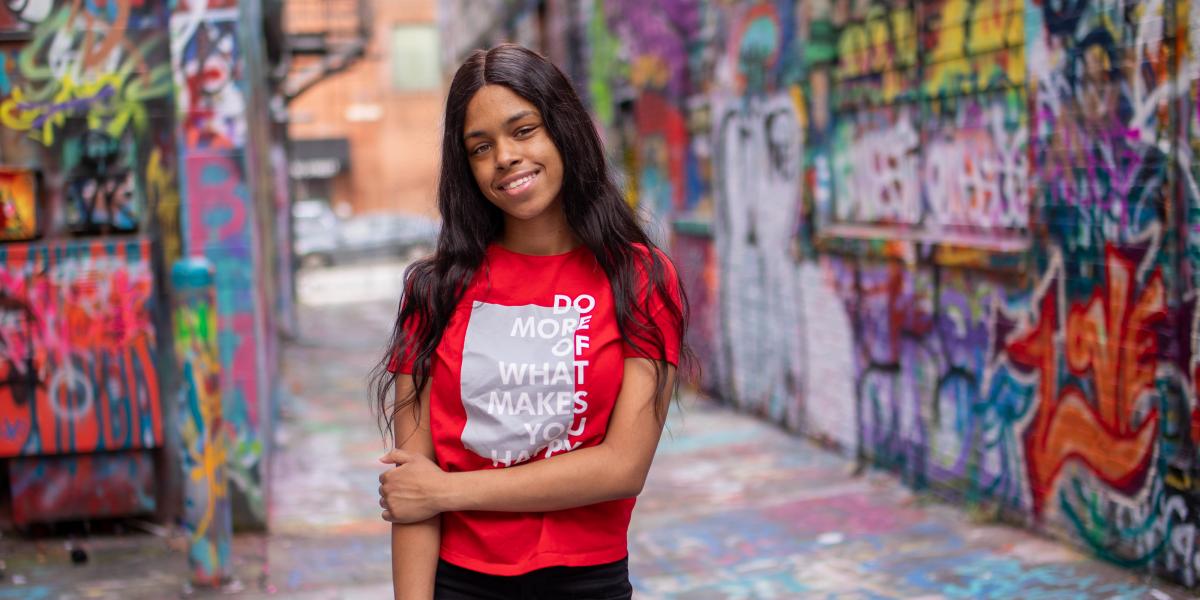Youth Voices Against Racism
Five young Baltimoreans share what they see—and what needs to change.
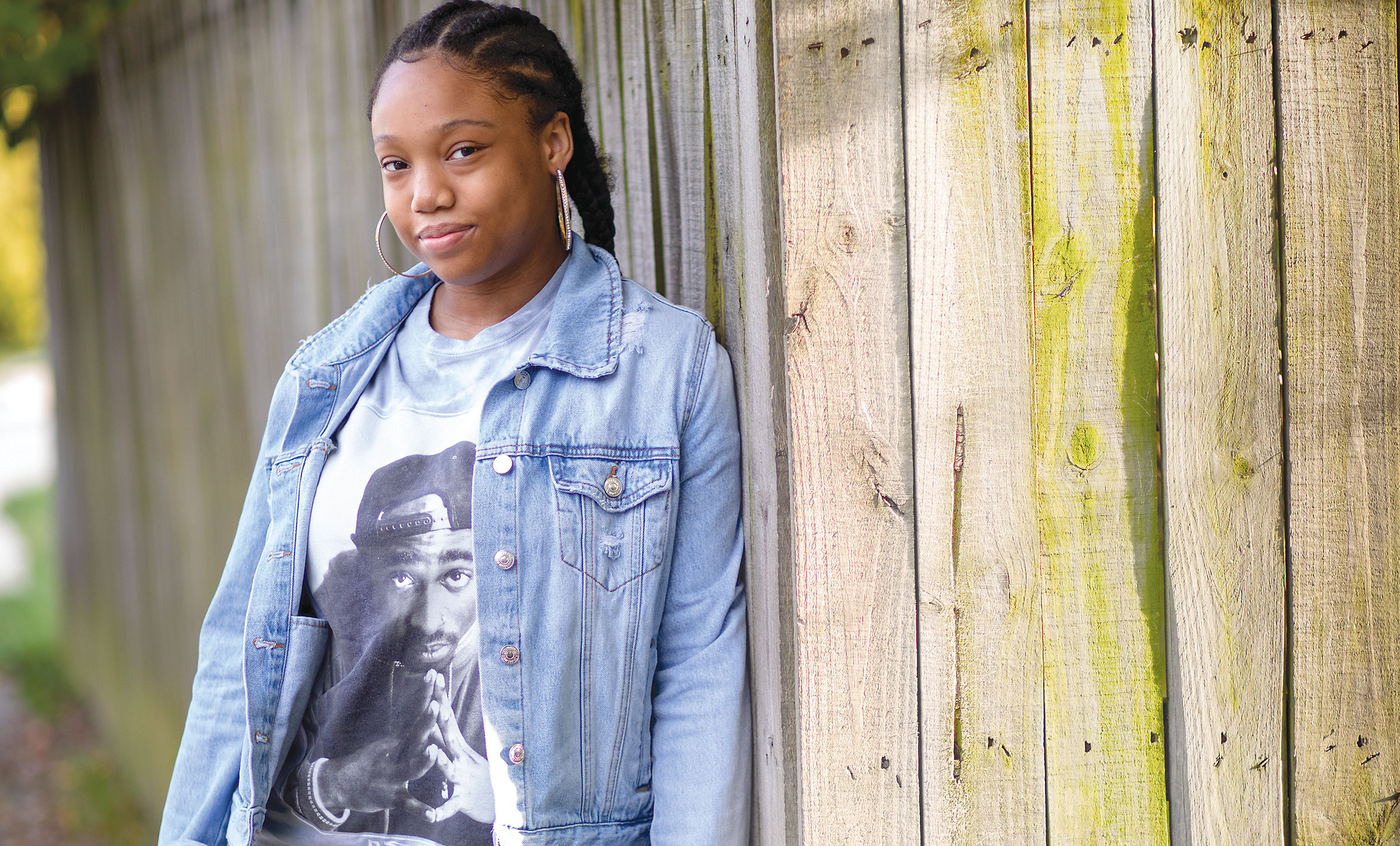
You Walk Down the Street Worried
By Lanae Williams
Racism is part of life in America.
Sometimes it’s out in the open: There’s no doubt that the guy in the red pickup truck who drove by me and yelled the N-word committed a racist act.
Sometimes it’s not. You don’t see it, and you can’t smell it—but you know it’s out there. Like an infectious virus.
You walk down the street worried. You want to feel you will be okay, but you can’t help feeling anxiety and adrenaline in your blood and having thoughts of being accused, harassed, or even killed.
Racism has also been written into the U.S. Constitution and laws that targeted the Black community.
The 13th Amendment, enacted in 1865 to abolish slavery, says, “Neither slavery nor involuntary servitude, except as a punishment for crime whereof the party shall have been duly convicted, shall exist within the United States.” The words “except as punishment for crime” kept slavery intact by jailing Blacks for petty crimes and leasing them out as prison labor. Even worse, thousands of innocent Blacks were murdered by lynching.
Knowing racism doesn’t mean you know racism, it simply means you are aware of it. You can see it in the outbursts of white supremacy groups.
Even with everything the BIPOC (Black, Indigenous, and people of color) communities have achieved, racism still thrives and conquers.
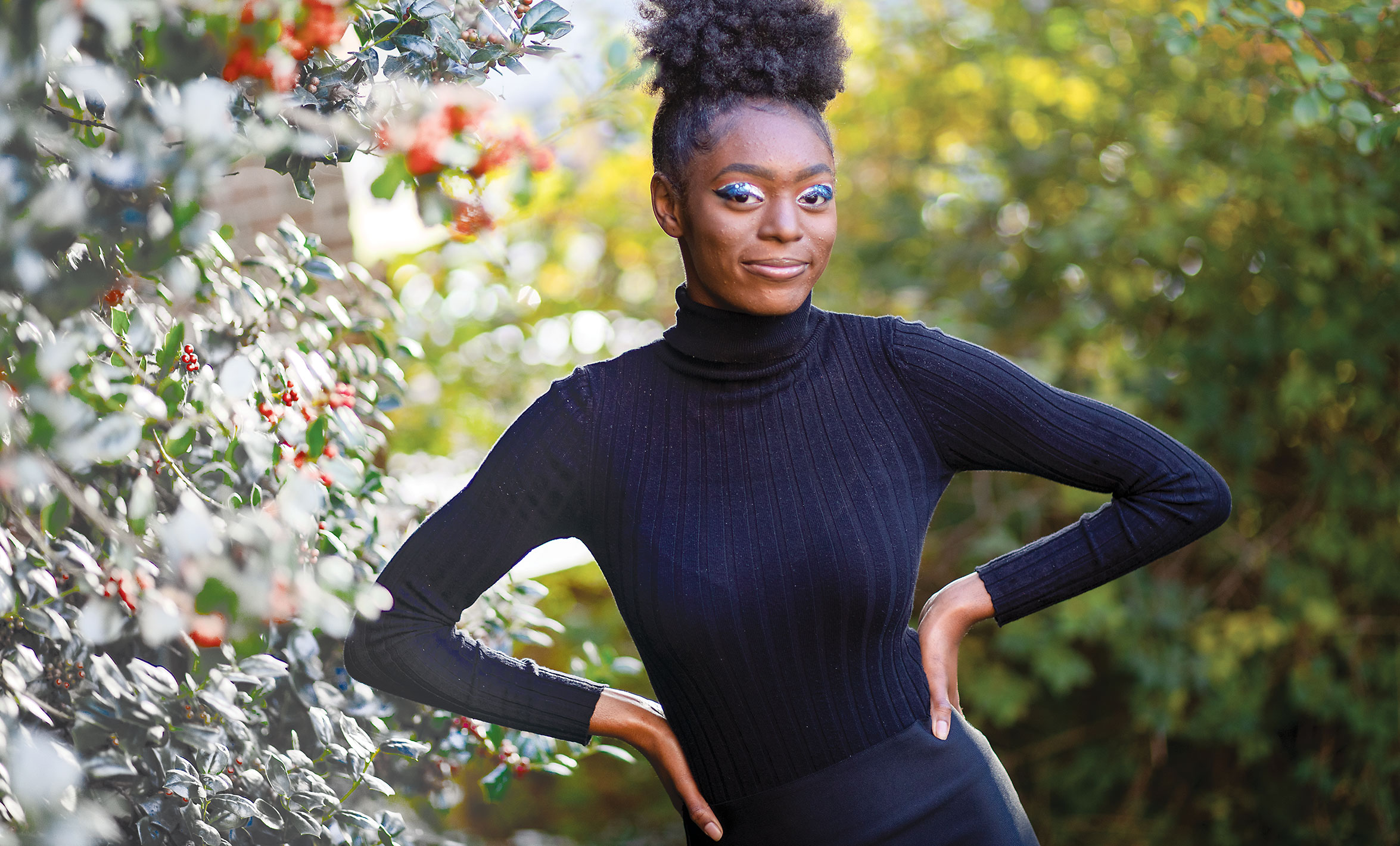
No Matter What Society Says
By Kayla Adams
Racism, I believe, exists in different forms—and even within the Black community.
Long-held racist beliefs about skin color and hair have trickled down into parts of Black culture—that lighter skin is valued more than a darker complexion, that a looser curl pattern makes you more beautiful than tight curls, sometimes described as “nappy,” a term used to degrade the beauty of Black women’s hair.
For Black people, especially, hair holds so much meaning. But it’s more than just hair. These beliefs affect self-esteem and can even determine whether someone gets a job or not.
My sister works at a Starbucks in a mostly white neighborhood, and a coworker told her that her hair made her look like a bull.
We have value and pride in our hair. In historical African cultures, hair could indicate social status. People brought from Africa to the U.S. as slaves would braid rice seeds into their hair so they wouldn’t starve.
There was a time when I wanted my hair and my skin to resemble a white girl’s, but I’ve learned not to care what people think. I want to be a positive role model for young Black girls. It hurts my heart to know that they may have the same insecurities that I had not too long ago. We should all genuinely love ourselves no matter what society says.
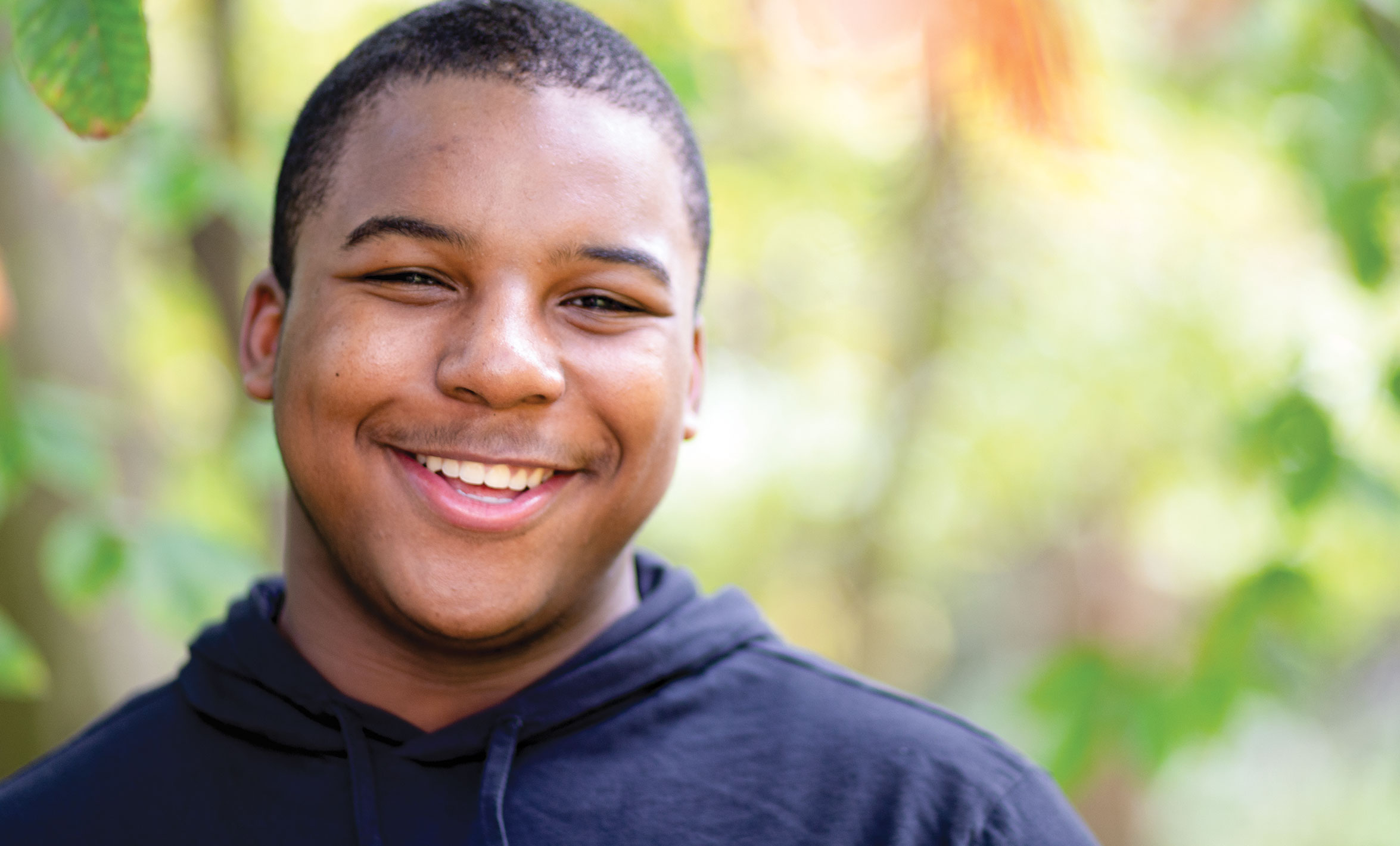
Melanin Motivation
By Rashad Holloway Jr.
As a Black male in a predominantly Black city, I’ve never had a heavy encounter with racism. I’ve heard stories but nothing too crazy.
However, the encounters I have had are memorable. I’d always heard of racial profiling but never experienced it until my freshman year of high school. A friend and I were helping out my mom with her sorority event, and we decided to get some lunch.
As we walked toward a white woman, she pulled her child away from us and clutched her purse. We knew what was going on: Because of the color of our skin, she had labeled us as dangerous.
This hurt. In my eyes, I was a kid who was never a danger to anyone. To label me because of my melanin frustrated me. I thought, How could anyone think this way?
I decided to turn my frustration into my poems “Complexion” and “TBIB 2020.” Eventually I realized that this is just how some people are raised, and I can use my poetry to educate them on their actions.
This encounter wasn’t as chaotic as others, but I was still frustrated about why a person thought I deserved to be labeled based on my skin. That woman has only become a motivation for me to strengthen my writing and eventually change the viewing of the Black male.
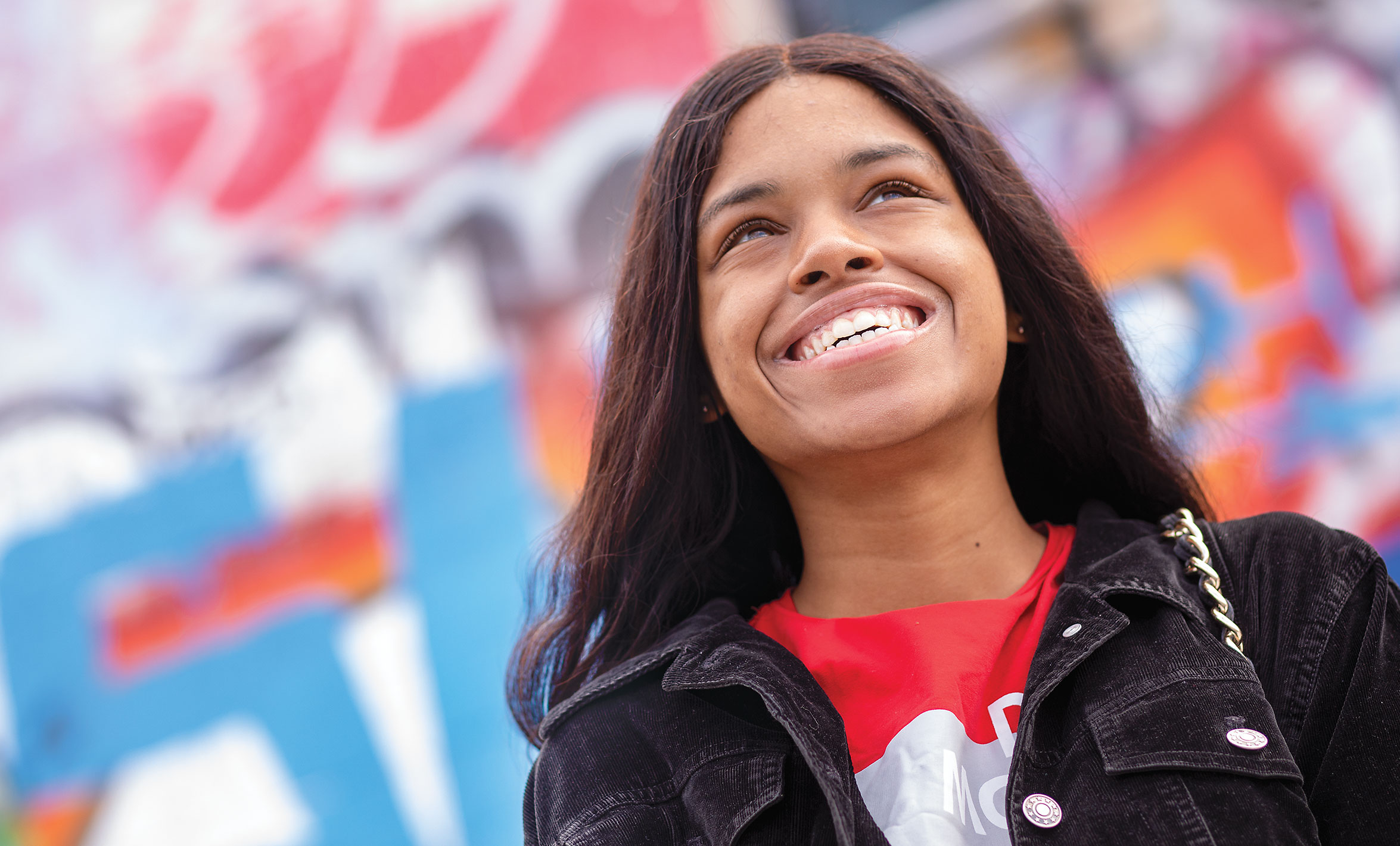
It’s Going to Take a Long Time
By Jada Johnson
I see racism in places where others may not even think it exists, in search engine results, for example. Less often, racism is made tangible in my life, like at a Black Lives Matter protest.
Every day, in Google searches, I pick up on hidden racism. I might be looking for clothing trends, blue hair color, or happy faces, and it’s always white people that pop up first. To see Black people, you need to scroll down.
Offline, at a Black Lives Matter protest at Baltimore’s City Hall last summer, my friend, who’s like a brother to me, found himself in a tense situation with the police—a place where no Black man ever wants to be.
He was chanting and holding a sign, and also was making sure that people didn’t become violent. The police stood around him and stared him down to intimidate him. They assumed he was going to riot because he was African American and raising his voice.
That experience reminded me of the history of African American voices being muffled, like making them take a test to vote. Today, voter identification laws make it difficult for some people to vote.
Sometimes I’m optimistic about defeating racism. But I think that it’s part of the system, and it’s going to take a long time to dismantle that system and repair it.
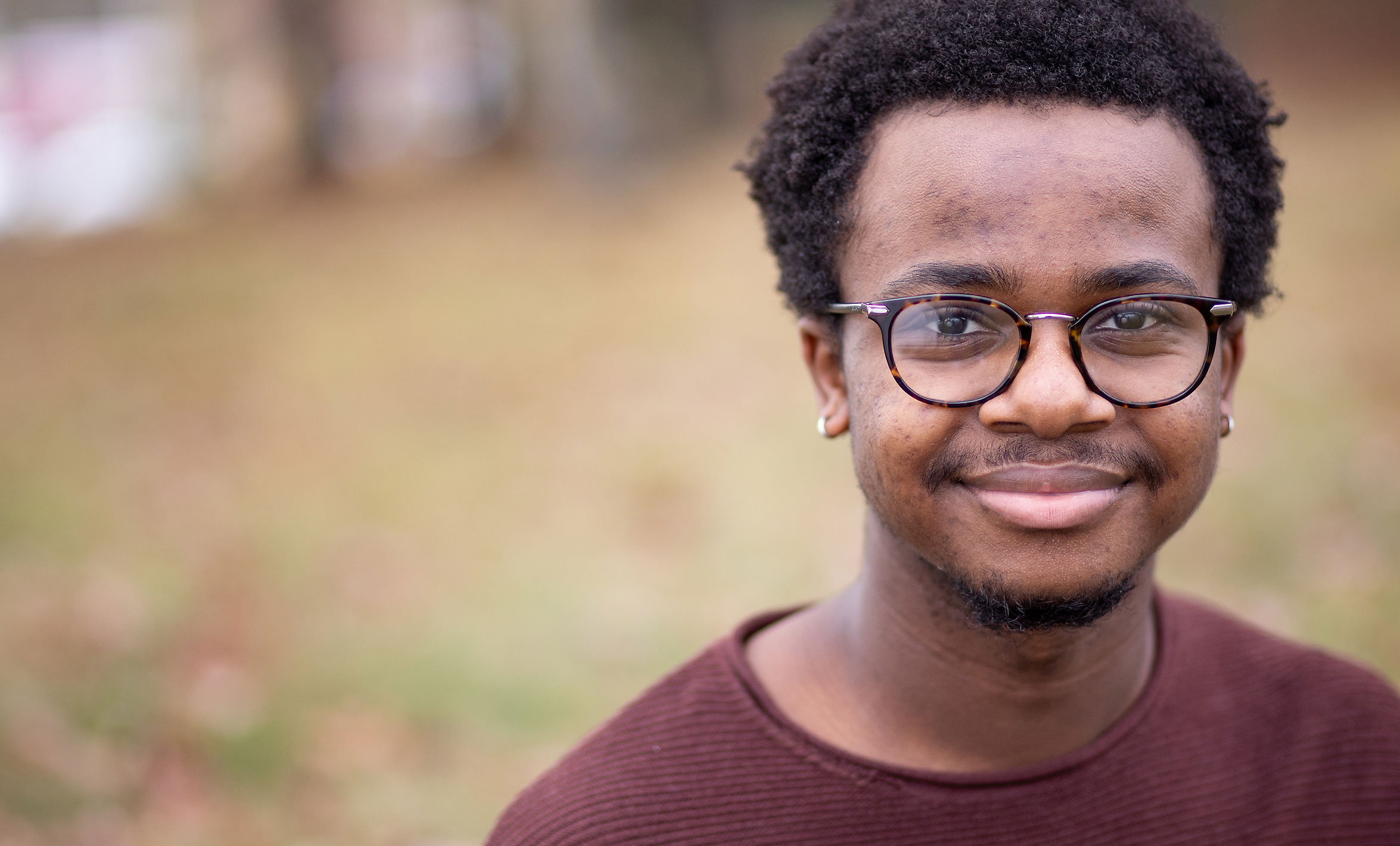
A Wish Come True
By James Powell
My first encounter with racism—although I didn’t realize it at the time—happened seven years ago on a shopping trip to Kohl’s with my dad and my 12-year-old sister. I was 10 and small for my age.
My sister and I had wandered off. As we made our way up an aisle, a white woman pulled her toddler away from us. I was a young boy and had been made to feel like I posed a danger to her child.
At the time, I didn’t understand the implications of the situation, and discovering the “why” behind that woman’s actions was disheartening. At a young age, I had experienced casual racism. No one had used a racial slur to my face or had been outwardly disrespectful to me, but it still hurt.
Over the years, these types of experiences would become routine, and I would feel the hurt all over again.
Sometimes white people ask about my hair or my home life—questions probably familiar to many Black Americans. They simply show a lack of respect for me.
When we have to deal with these things, sometimes daily, it can affect our mental health. We spend years learning to be proud of who we are and where we come from.
It would be a wish come true if other people could see us the way we see ourselves.
